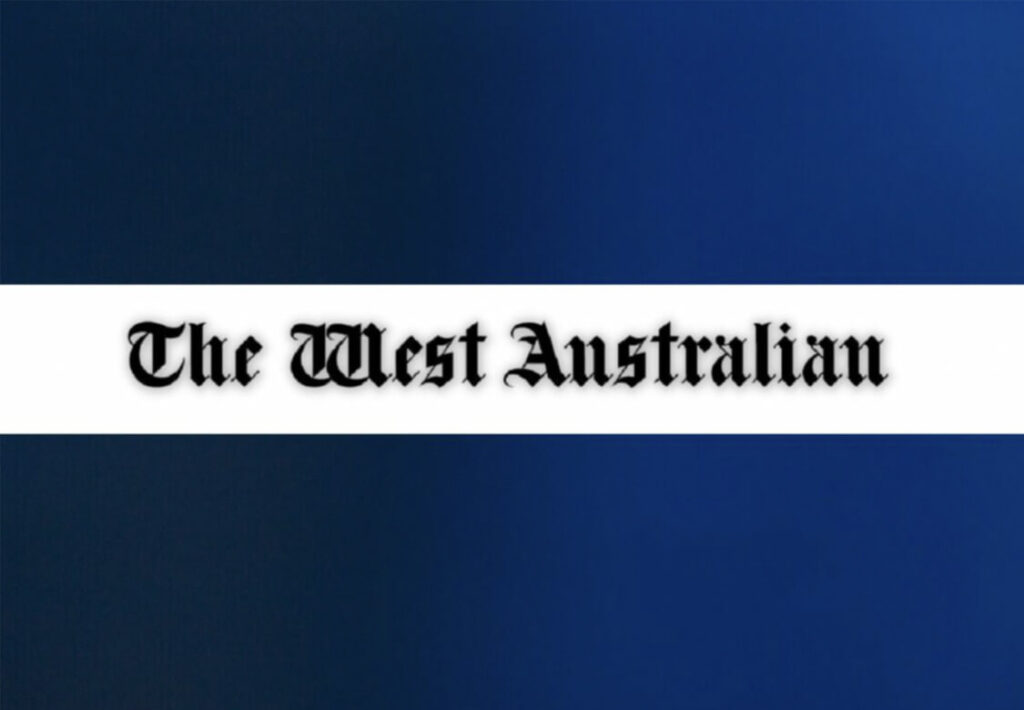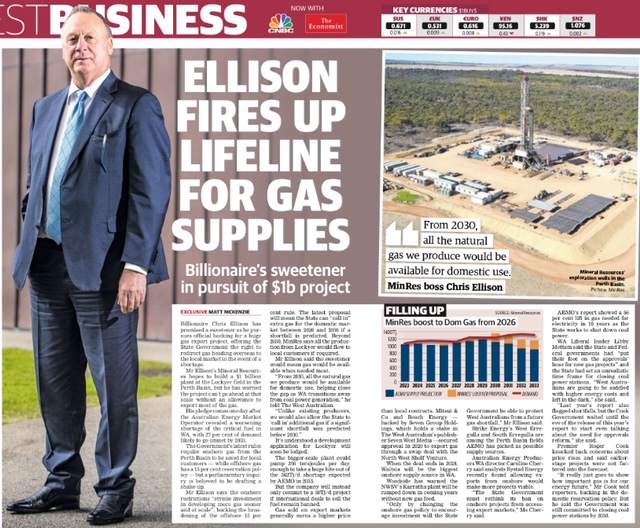

Article by Matt McKenzie courtesy of the West Australian
Billionaire Chris Ellison has promised a sweetener as he pursues official backing for a huge gas export project, offering the State Government the right to redirect gas heading overseas to the local market in the event of a shortage.
Mr Ellison’s Mineral Resources hopes to build a $1 billion plant at the Lockyer field in the Perth Basin, but he has warned the project can’t go ahead at that scale without an allowance to export most of the gas.
His pledge comes one day after the Australian Energy Market Operator revealed a worsening shortage of the critical fuel in WA, with 27 per cent of demand likely to go unmet by 2033.
The Government’s latest rules require onshore gas from the Perth Basin to be saved for local customers — while offshore gas has a 15 per cent reservation policy — but a parliamentary inquiry is believed to be drafting a shake-up.
Mr Ellison says the onshore restrictions “stymie investment in developing more gas sooner and at scale”, backing the broadening of the offshore 15 per cent rule. The latest proposal will mean the State can “call in” extra gas for the domestic market between 2026 and 2030 if a shortfall is predicted. Beyond 2030, MinRes says all the production from Lockyer would flow to local customers if required.
Mr Ellison said the sweetener would mean gas would be available when needed most.
“From 2030, all the natural gas we produce would be available for domestic use, helping close the gap as WA transitions away from coal power generation,” he told The West Australian.
“Unlike existing producers, we would also allow the State to ‘call in’ additional gas if a significant shortfall was predicted before 2030.”
It’s understood a development application for Lockyer will soon be lodged.
The bigger-scale plant could pump 250 terajoules per day, enough to take a huge bite out of the 362Tj/d shortage expected by AEMO in 2033.
But the company will instead only commit to a 30Tj/d project if international deals to sell the fuel remain banned.
Gas sold on export markets generally earns a higher price than local contracts. Mitsui & Co and Beach Energy — backed by Seven Group Holdings, which holds a stake in The West Australian’s publisher Seven West Media —secured approval in 2020 to export gas through a swap deal with the North West Shelf Venture.
When the deal ends in 2028, Waitsia will be the biggest onshore supply source in WA.
Woodside has warned the NWSV’s Karratha plant will be ramped down in coming years without new gas feed.
“Only by changing the onshore gas policy to encourage investment will the State Government be able to protect West Australians from a future gas shortfall,” Mr Ellison said.
Strike Energy’s West Erregulla and South Erregulla are among the Perth Basin fields AEMO has picked as possible supply sources.
Australian Energy Producers WA director Caroline Cherry said analysts Rystad Energy recently found allowing exports from onshore would make more projects viable.
“The State Government must rethink its ban on onshore projects from accessing export markets,” Ms Cherry said.
AEMO’s report showed a 56 per cent lift in gas needed for electricity in 10 years as the State works to shut down coal power.
WA Liberal leader Libby Mettam said the State and Federal governments had “put their foot on the approvals’ hose for new gas projects” and the State had set an unrealistic time frame for closing coal power stations. “West Australians are going to be saddled with higher energy costs and left in the dark,” she said.
“Last year’s report also flagged shortfalls, but the Cook Government waited until the eve of the release of this year’s report to start even talking about the need for approvals reform,” she said.
Premier Roger Cook knocked back concerns about price rises and said earlier-stage projects were not factored into the forecast.
“It really just goes to show how important gas is for our energy future,” Mr Cook told reporters, backing in the domestic reservation policy. But he said the Government was still committed to closing coal power stations by 2030.
From 2030, all the naturalgas we produce would beavailable for domestic use.MinRes boss Chris Ellison